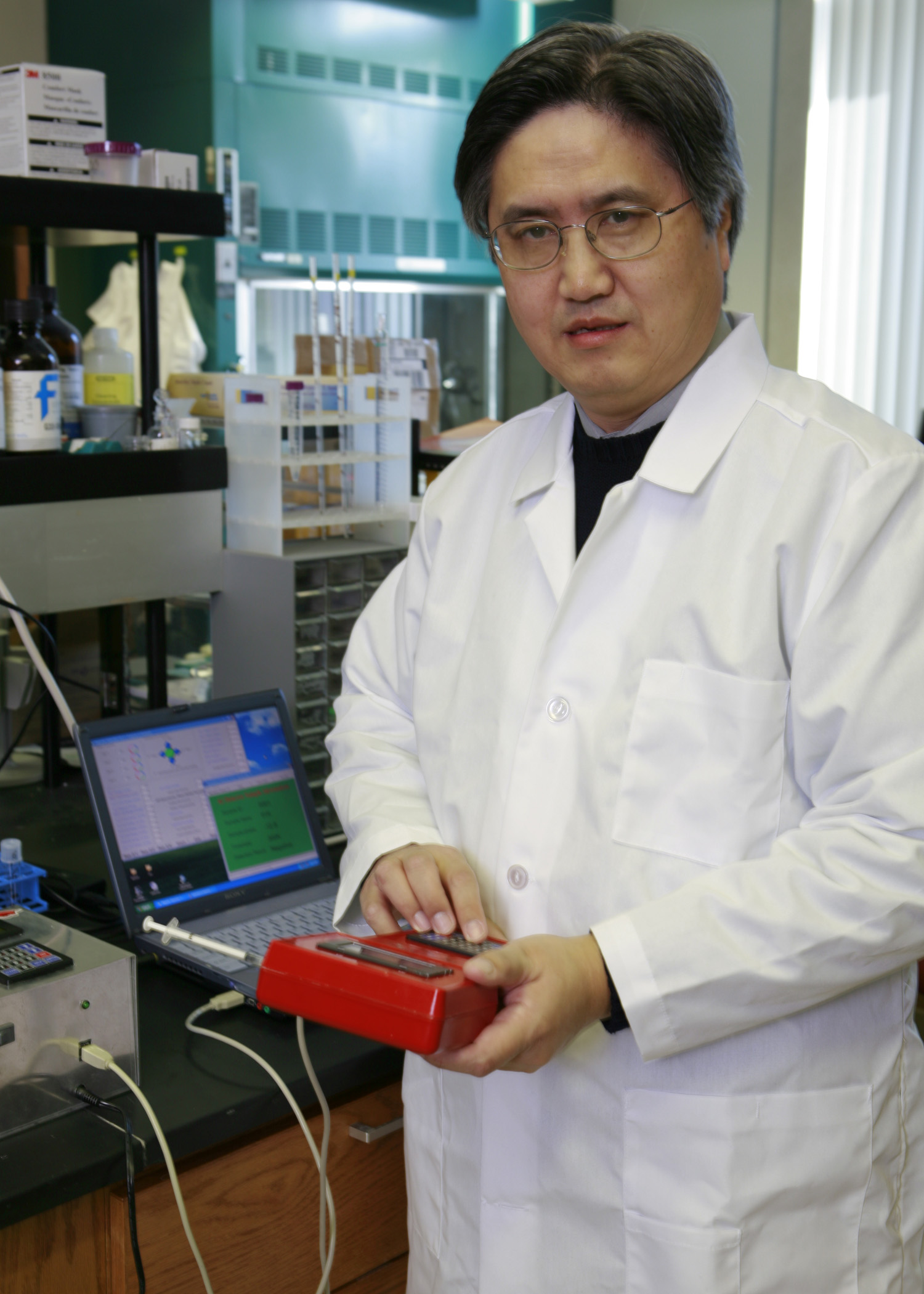
FAYETTEVILLE, Ark. -- Dean Greg Weidemann of the Dale Bumpers College of Agricultural, Food and Life Sciences at the University of Arkansas announced Wednesday, July 11, that UA professor Yanbin Li has been named to hold the Tyson Endowed Chair in Biosensing Engineering.
Li is one of the world’s leading scientists in the development of biosensing technology for food safety and quality applications, Weidemann said in an announcement in the atrium of the Agricultural, Food and Life Sciences Building.
Li has developed a prototype portable biosensor system that can detect the H5N1 avian influenza virus in poultry samples in less than one hour at an estimated cost of less than $10 per sample. H5N1 is the “bird flu” virus that has been transmitted from poultry to humans in more than 300 cases in Asia, Africa and Europe.
A $1.5 million endowment for the new chair was provided by the Tyson Foods Foundation from a gift announced in May 2005 and received matching funds through the University of Arkansas Matching Gift Program previously endowed by the Walton Family Charitable Support Foundation, Weidemann said. Investment earnings from the endowment will help support Li’s research in the department of biological and agricultural engineering and the Center of Excellence for Poultry Science, which is a unit of the University of Arkansas System’s Division of Agriculture.
Li is principal investigator on a recent grant of $375,000 from the U.S. Department of Agriculture’s National Research Initiative to refine and test the H5N1 biosensor system. Co-investigators are Billy Hargis, Steve Tung and Ronghui Wang at University of Arkansas and Luc Burghman at Texas A&M University.
Mark Cochran, associate vice president for research in the Division of Agriculture, said the patent-pending H5N1 biosensor system would be much faster, more reliable, easier and cheaper than currently available tests, which are either poor in specificity, low in sensitivity, time consuming, expensive, or require a laboratory and a highly trained technician.
In other research, Li has been the lead scientist in developing systems using nanoparticles and biosensors for rapid detection of pathogenic bacteria in food products. He also has developed risk-assessment models for pathogens in food processing and methods of killing bacteria during poultry processing.
Li joined the university faculty in 1994. Among his several awards are the Arkansas Alumni Association Distinguished Faculty Achievement in Research and Service Award in 2003, the John Imhoff Research Award in the College of Engineering in 2006, and the Gamma Sigma Delta Outstanding Researcher Award and Outstanding Agricultural Engineer Award from the Arkansas Section of the American Society of Agricultural Engineers in 2002.
Li is editor of the journal, Biological Engineering, associate editor for Transactions of the ASABE, and an editorial board member for the Journal of Food Protection and the Journal of Sensing & Instrumentation for Food Safety and Quality. He is also adjunct professor of Zhejiang University and China Agricultural University.
Li has a doctoral degree in agricultural engineering from Pennsylvania State University and bachelor’s and master’s degrees, respectively, from Shenyang Agricultural University and the University of Nebraska-Lincoln.
Contacts
,